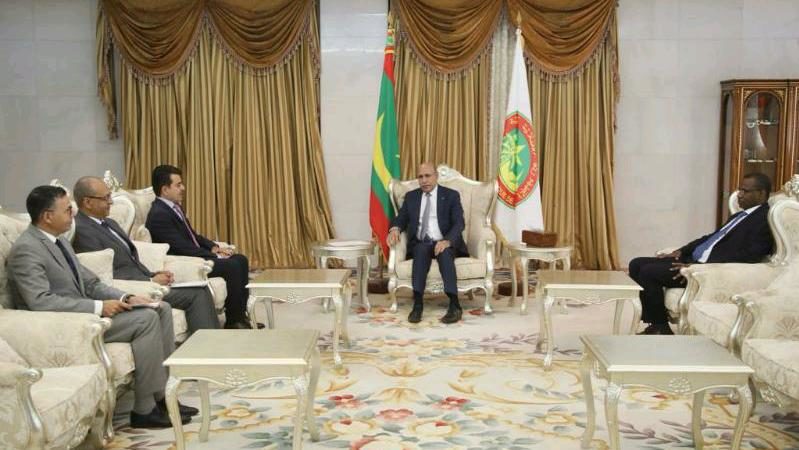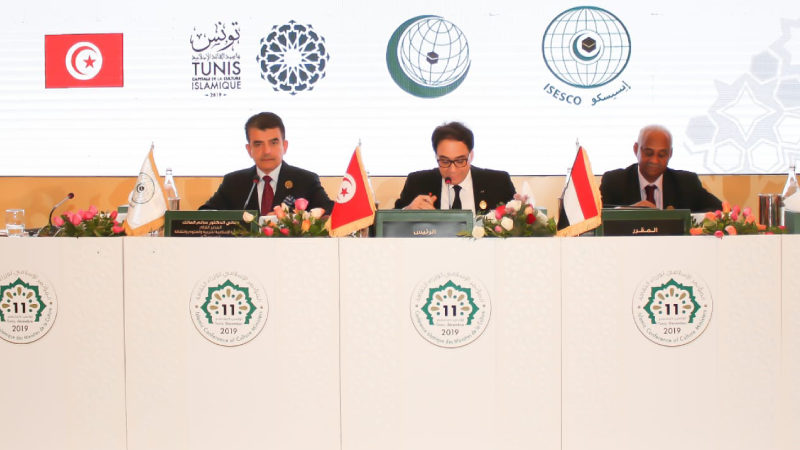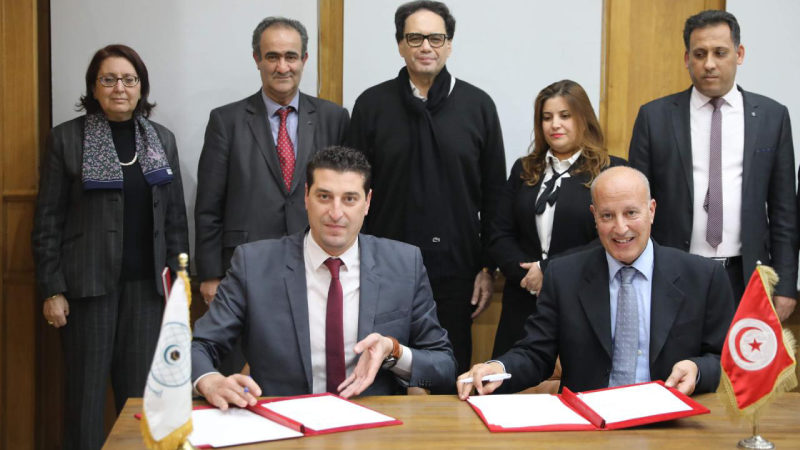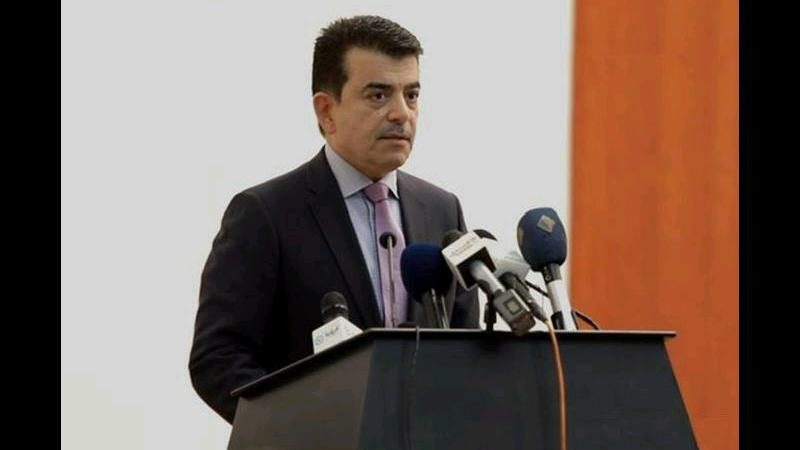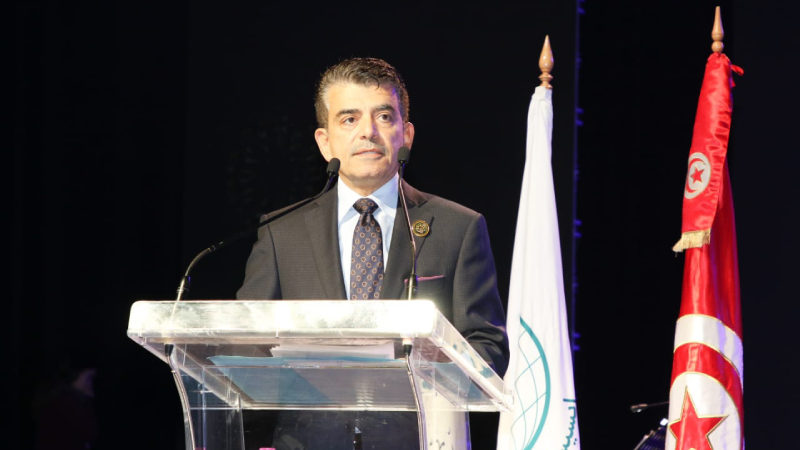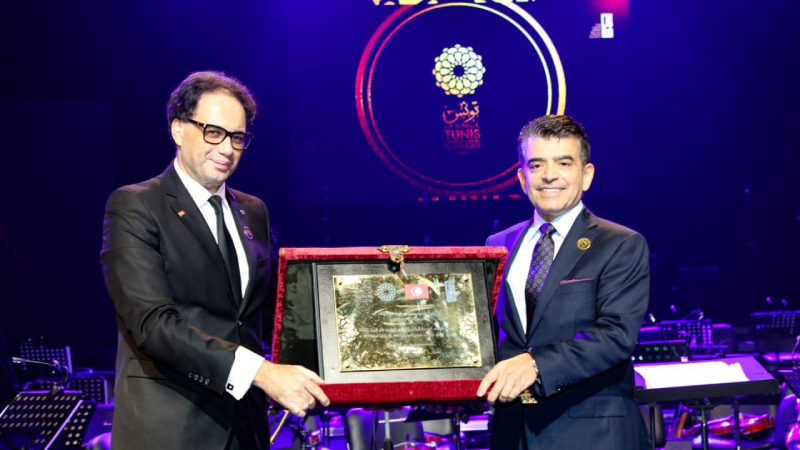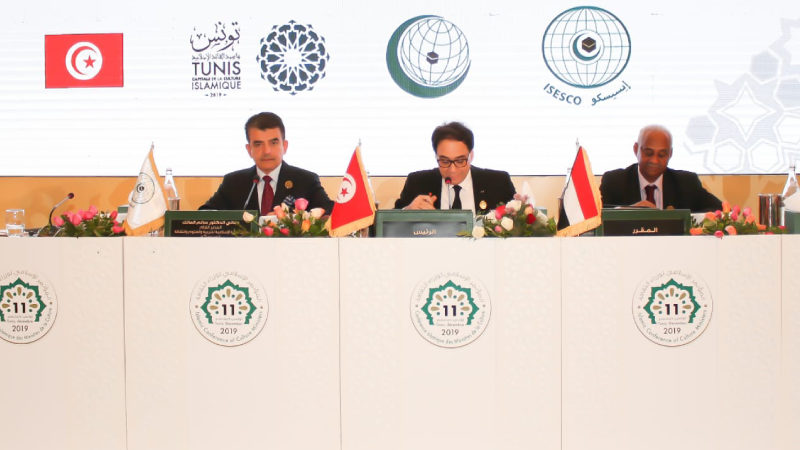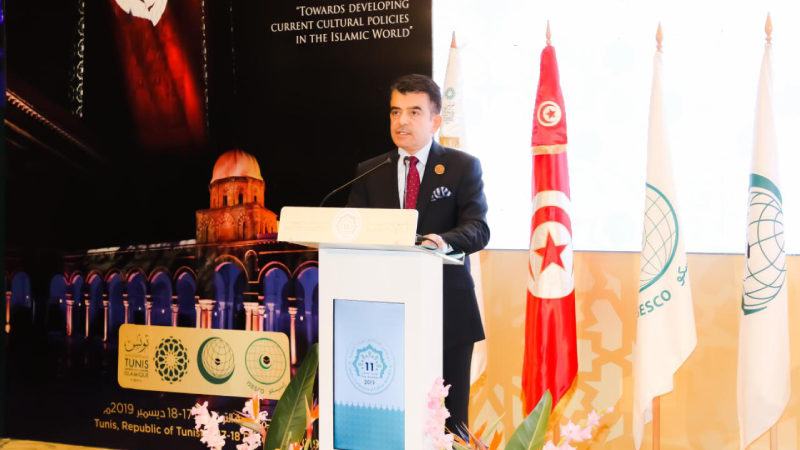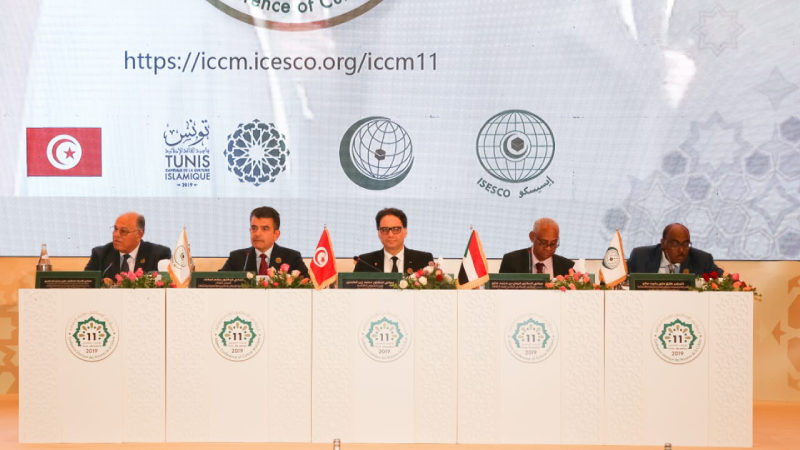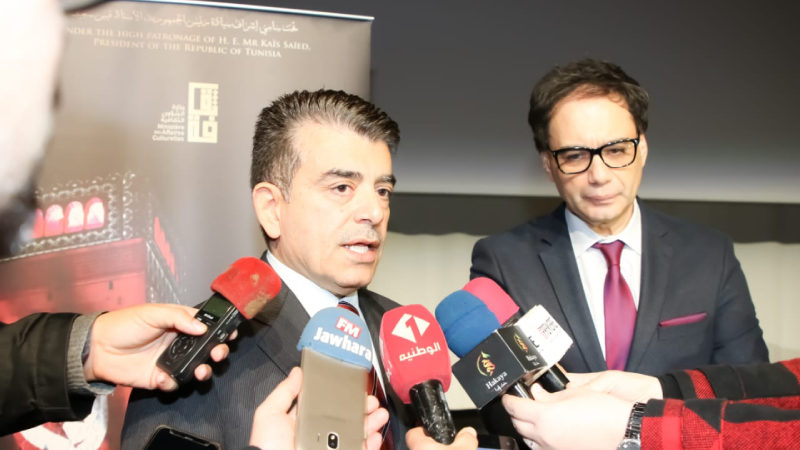H.H. Mr. Mohamed Ould Cheikh Ghazouani, President of the Islamic Republic of Mauritania, today at the Presidential Palace in Nouakchott, received Dr. Salim M. AlMalik, Director General of the Islamic Educational, Scientific and Cultural Organization (ISESCO), who is in a visit to Mauritania upon an invitation from Dr. Sidi Mohamed Ould Ghaber, Minister of Culture, Handicrafts and Relations with the Parliament of Mauritania, to attend the award ceremony of Chinguetti Prize 2019 as a guest of honor.
At the outset of the meeting, Dr. AlMalik thanked President of Mauritania for the warm welcome, commended Chinguetti Prize and its role in supporting and encouraging scholars and intellects to be creative, and reviewed ISESCO’s new vision, which pays special attention to the cultural heritage and scientific research as two foundations of development.
Besides, Dr. AlMalik highlighted a number of initiatives that ISESCO intends to launch in Mauritania, including the importance of Mahdara in the Islamic world as it constitutes a great and unique heritage of Mauritania.
The meeting also tackled ISESCO’s initiatives to proclaim Nouakchott as a Capital of Islamic Heritage given its rich heritage and history as well as its intellects and historians.
Dr. AlMalik stated that the four ancient towns in Mauritania have had their share of ISESCO’s attention through their preservation to be an exemplary model for Muslim countries. “Five Mauritanian heritage sites have been inscribed by the Islamic World Heritage Committee. We are hopeful that we will inscribe more tangible and intangible heritage”, he added.
H.E. Mr. Mohamed Ould Cheikh Ghazouani also expressed his appreciation of ISESCO’s initiatives while reaffirming his country’s willingness to cooperate with the Organization in their implementation so as to embody the partnership of the two parties.
The meeting was attended by Dr. Sidi Mohamed Ould Ghaber, Minister of Culture, Handicrafts and Relations with the Parliament of Mauritania; as well as Dr. Ahmed Said Bah, Director of External Relations and Cooperation; and Mr. Adel Bouraoui, Supervisor of the Directorate of Education from ISESCO.

